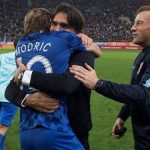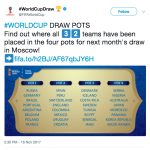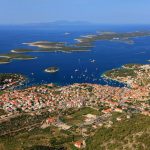“Our players are aware of how powerful they are and that they can do a lot in Russia. The key is to keep the communion in the dressing room.”
Even during the 2016 European Championship in France when Slaven Bilić was engaged as a columnist for the Daily Mail, he stated:
“It’s important for the coach to keep a good atmosphere in their team. There is one qualifying match when the gathering is reduced to five to six days, and others to prepare for their performance at major competitions,” reports Jutarnji List on April 29, 2018.
On the talk show “Istinom do gola”, Bilić pointed out that there was much less of a question mark coaching his second European Championship in 2012, and namely that he “learned how important the player’s quality is and the atmosphere in and around the team”.
Now, ahead of the World Cup in Russia, Bilić repeats this thought and continues to recommend that this is of the utmost importance. Of course, the current Croatia national team coach is well known, but it is critical that a pleasant ambience is not disturbed by anything.
“The coach, with that plan, can improve the ambience by ten percent. Ciro? All right, he was great, but for us, in my playing time, I think of Euro 1996 and Mundial in France 1998, the most important part was our friendship,” said Bilić on the talk show “Istinom do gola”.
Bilić then cited the example of England, the brilliant generations of Beckham, Gerard, Lampard, Rooney, and other aces, who never really come close to their success, and as Rio Ferdinand said – it was because they were not close enough to each other.
“That component of friendship, coexistence, communion with the players, and even the coaches and staff, is essential. Given that this has been our team for a long time, I think most players, and I think that Croatia, naturally, with the quality of the players, can do a lot at the World Cup.”
When Croatia experienced an unlucky elimination against Turkey in the quarterfinals of the European Championship in 2008, and the players returned to Zagreb, then – remembered Bilić – they did not go their separate ways, but about a dozen of them went to dinner together.
“Now imagine, they were together for six weeks, exerted by the pressure, the expectations, and when we were out of the competition, they were disappointed but still had the will and desire to be together. I believe that the players are now aware of how powerful they are, I am sure they are shaken by ambition, motivated, and want to do something great for Croatia, and of course for themselves…”
After analyzing the elimination of Croatia at the European Championships in 2008 and 2016 in the knockout phase, and the unfortunate circumstances in the games against Turkey and Portugal, Bilić admitted:
“I often thought about and discussed the games in the company of my associates. Yes, it was unlucky, but there were also our, or I can say my, wrong predictions. It was because I went in against Turkey, with the knowledge that we are favorites, aware that we have a better team, how good we are because we have achieved three victories in the group, against the hosts of Austria, then Germany and Poland. It seemed logical to me then that we have to play carefully because we will, sooner or later, score a goal and go to the semifinals. That was wrong; we had to play more courageously, uncompromisingly, even riskier, to seek the way to victory. A similar situation happened in 2016 against Portugal.”
Bilić, after his dismissal from West Ham last November, has been keeping a low profile in Split and is enjoying the care of family and friends, because this break, as he said, he needed. There are offers on the table, and the primary wish is to return to the Premiership, leaving the possibility of training a club in the Championship. But after being proved as the coach of Croatia, Lokomotiva, Beşiktaşa and West Ham, Bilić is attracted to some new destinations.
“Hajduk? Returning there does not come to mind, though Hajduk means a lot to me. Hajduk launched my career as a coach, even though when I was playing football I never saw that as a role. However, it happened. I replaced Nenad Gračan, warmed up and after my playing career I’ve had a good career as a trainer.”
Translated from Jutarnji List










